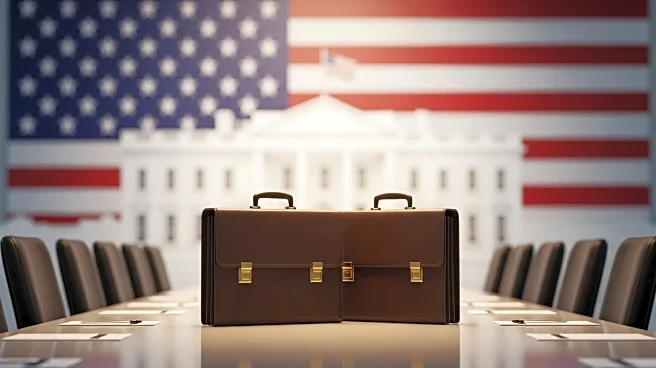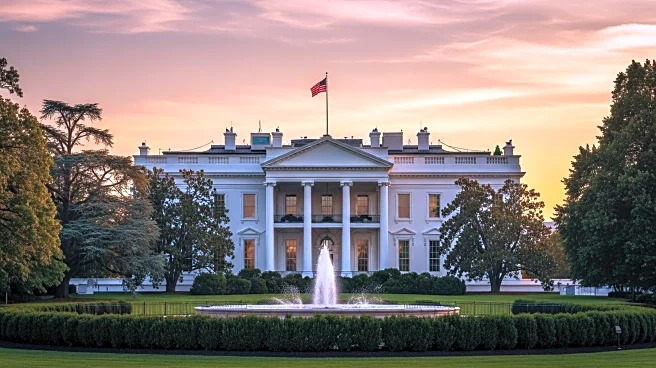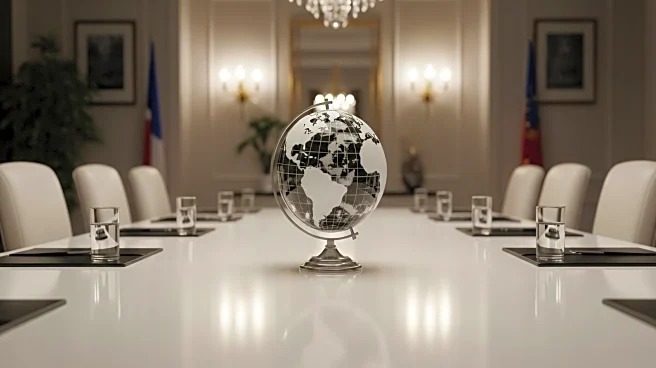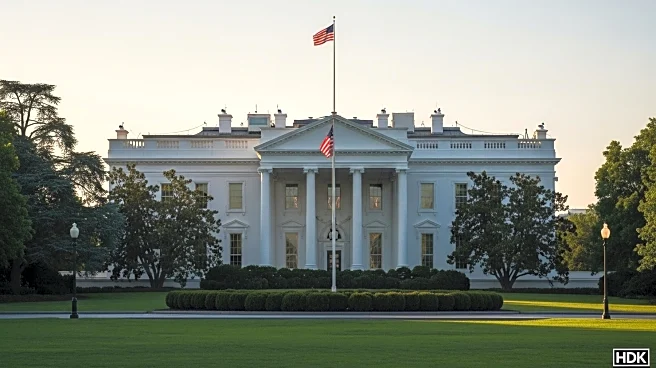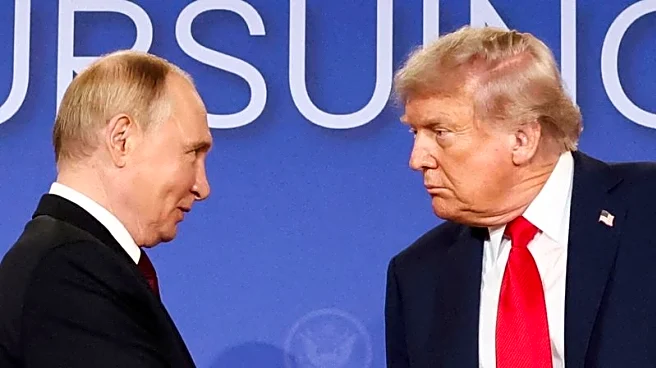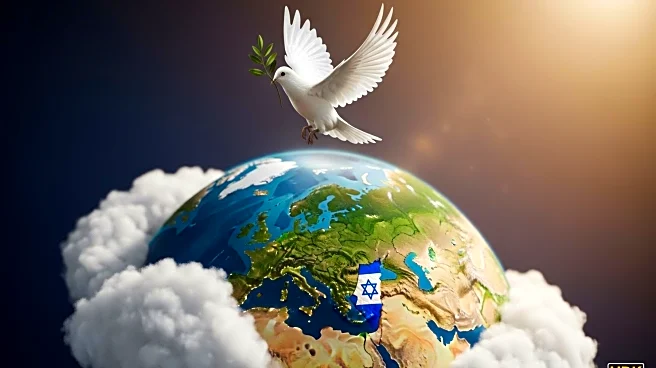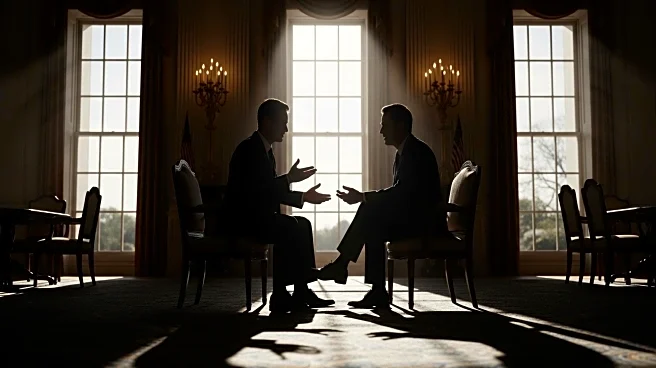What's Happening?
Jared Kushner, former UK Prime Minister Tony Blair, and other key figures participated in a meeting at the White House led by President Trump to discuss a plan for post-war Gaza. The meeting, which lasted over an hour, included Steve Witkoff, the president's foreign envoy, and other top administration aides. The exact details of the plan remain unclear, but it is part of the administration's efforts to end the nearly two-year conflict in Gaza. Kushner, who has been advising on Middle East issues, does not hold an official role in the White House but has been involved in discussions about Gaza's future once the war concludes.
Why It's Important?
The meeting signifies a continued focus by the Trump administration on resolving the conflict in Gaza and shaping its future governance and reconstruction. The involvement of Kushner and Blair highlights the international dimension of the discussions, potentially influencing U.S. foreign policy and relations in the Middle East. The outcome of these talks could impact regional stability, humanitarian efforts, and geopolitical dynamics, particularly concerning the role of Hamas and the governance of Gaza post-conflict.
What's Next?
Further details on the plan for Gaza are expected to emerge as discussions continue. The administration's approach may face scrutiny from international stakeholders and could lead to diplomatic negotiations with regional leaders. The White House has indicated a desire for peace and prosperity in the region, suggesting ongoing efforts to develop a comprehensive strategy for Gaza's future.
Beyond the Headlines
The discussions at the White House may have broader implications for U.S. involvement in Middle Eastern affairs, potentially affecting diplomatic relations and humanitarian policies. The administration's vision for Gaza, including controversial proposals like a U.S. takeover, could influence long-term regional strategies and international perceptions of U.S. foreign policy.
